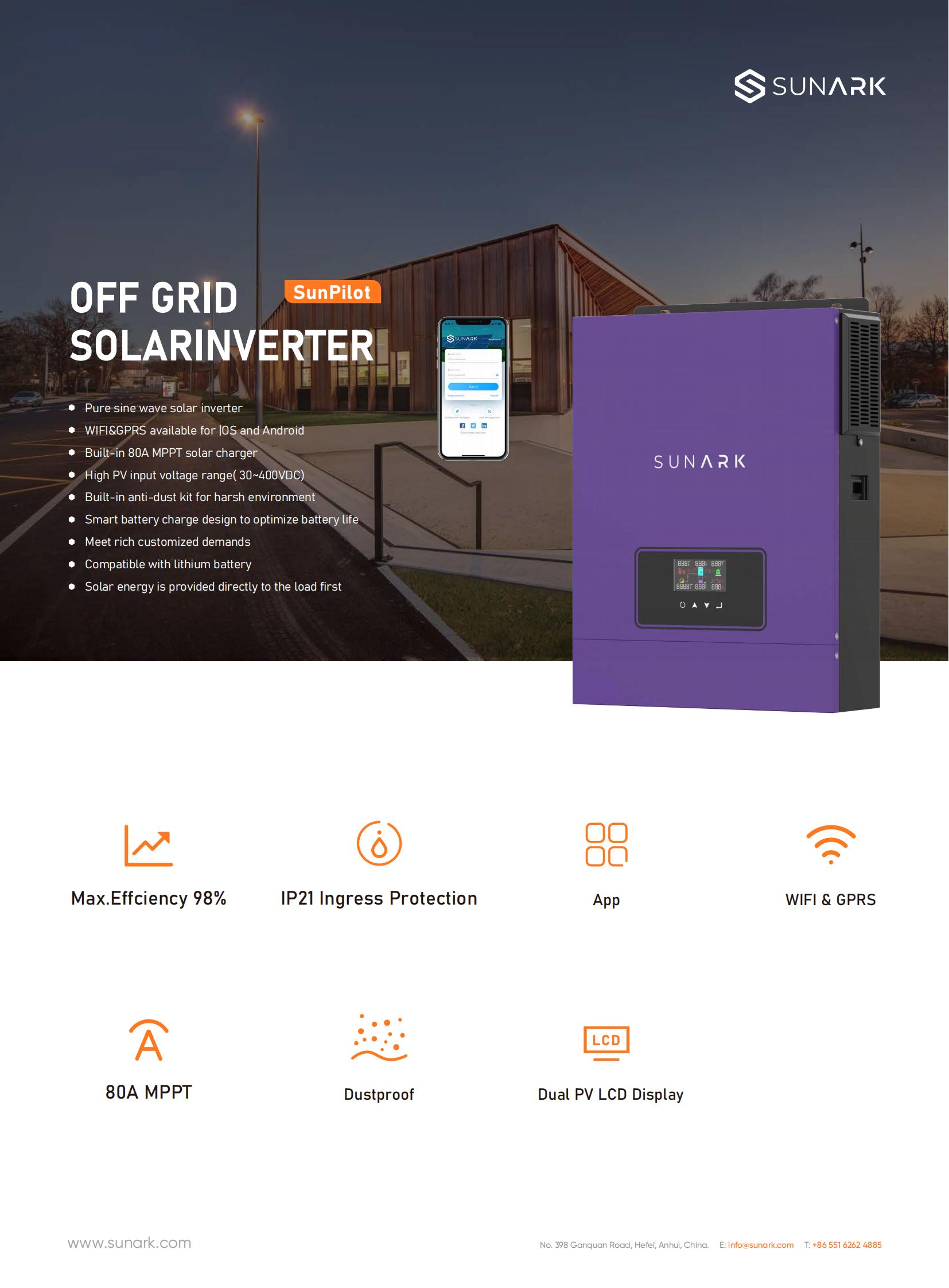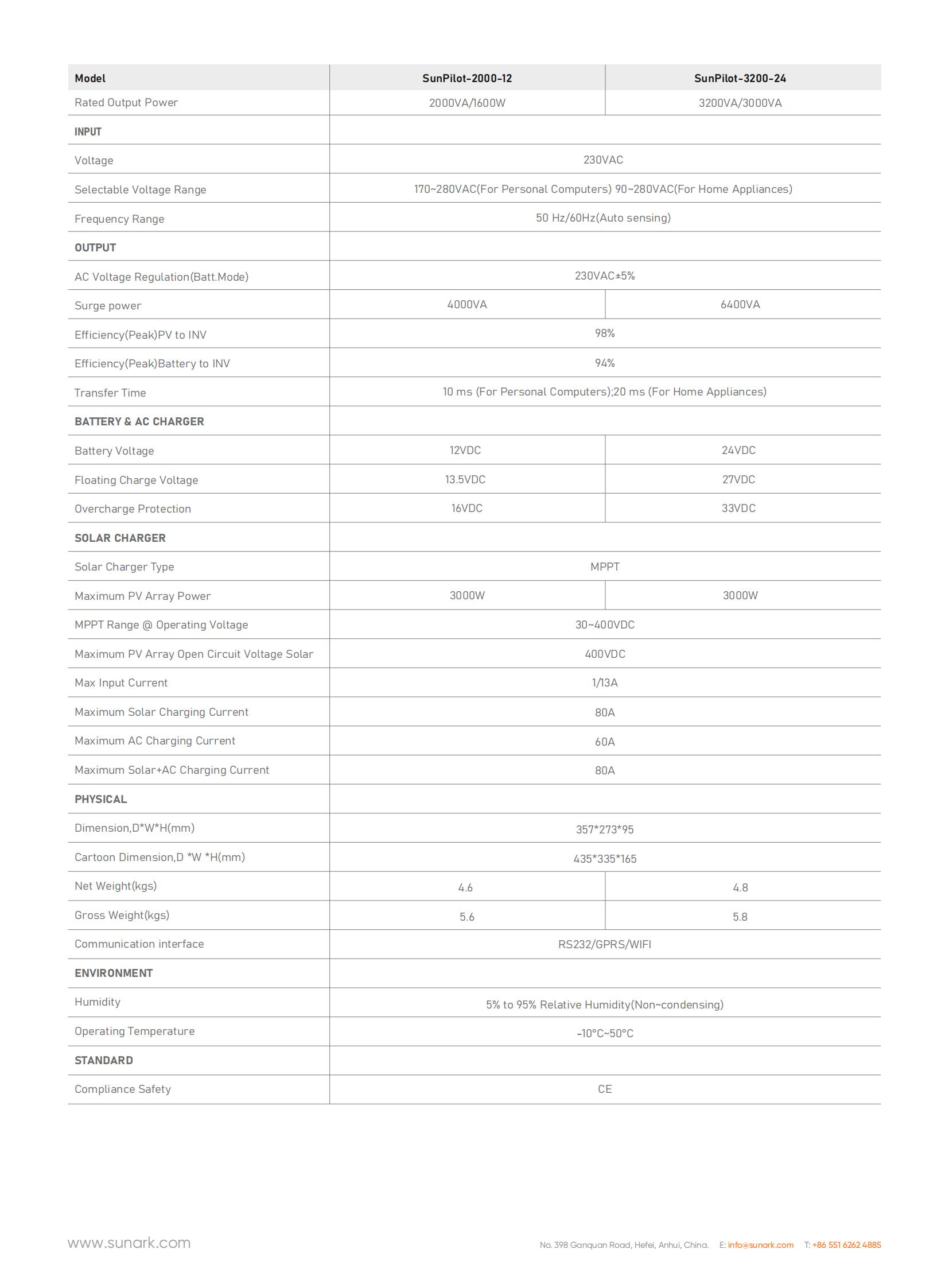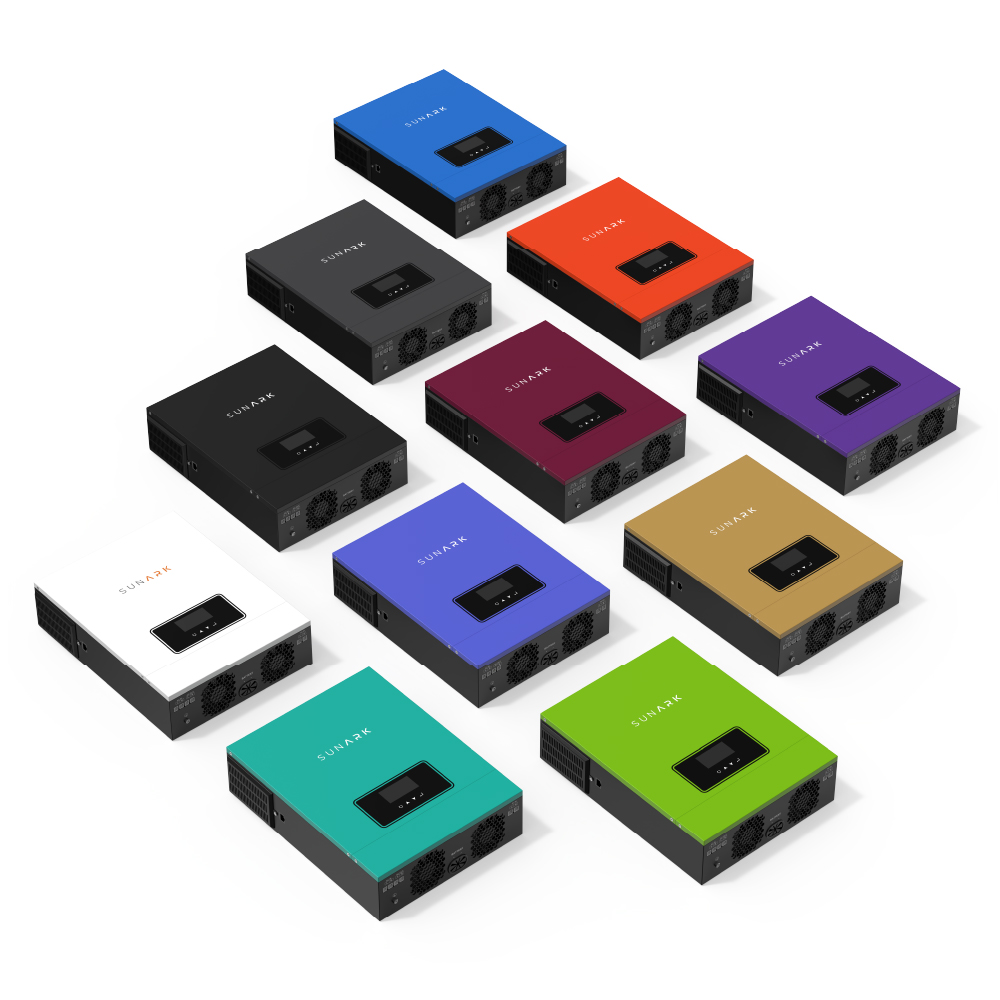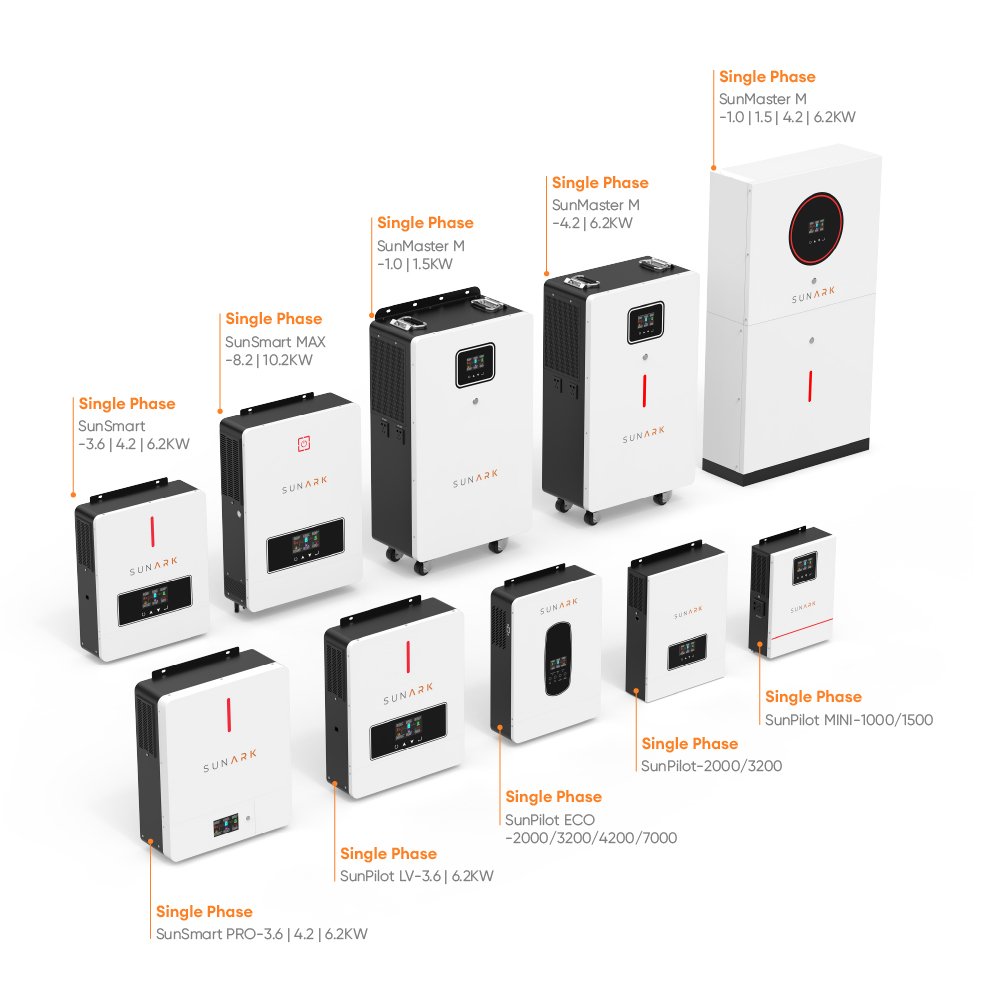SunArk SunPilot series hybrid solar inverters are mainly designed for small home use which appliance's voltage is adapt to 230V single phase, 3200VA rated output power can run the small loads which including lights, TVs, refrigerators, air conditioners, which are small home loads, it is most popular in Africa areas.
Brand:
SunArkBrand:
SunArkModel name:
SunPilot-3200-24Max PV power:
3000WMPPT voltage range:
30~400VDCRated output power:
3200VAOutput voltage:
230VAC±5%The datasheet of SunArk SunPilot series 3200VA at below:



A hybrid solar inverter is a type of inverter that combines the functionality of a grid-tied inverter and a battery storage inverter.
Here are some key features and aspects of a hybrid solar inverter:
1. Grid-Tied Functionality: Like a regular grid-tied inverter, a hybrid solar inverter can convert the direct current (DC) electricity generated by solar panels into alternating current (AC) electricity that can be used to power your home or fed back into the grid.
2. Battery Storage Capability: What sets hybrid inverters apart is their ability to also charge and discharge batteries. This allows you to store excess solar energy generated during the day for use at night or during periods of low sunlight.
3. Backup Power: In the event of a grid outage, hybrid inverters can switch to operate in standalone mode using the energy stored in batteries, providing backup power to critical loads in your home.
4. Energy Management: Many hybrid inverters come with sophisticated energy management systems that optimize the use of solar energy and battery storage, helping to minimize reliance on grid electricity and reduce energy costs.
5. Monitoring and Control: They often include monitoring capabilities that allow you to track energy production, consumption, and battery status through a mobile app or web portal.
6. Compatibility: Hybrid inverters are typically designed to work with both new and existing solar PV systems, integrating seamlessly with various panel configurations and battery technologies.
Choosing the right hybrid solar inverter involves considering factors such as your energy consumption patterns, the size of your solar PV system, the capacity of the battery storage, and the specific features offered by different models.

SunArk offers a big variety of different types of hybrid inverters, which includes different voltage and different power, also has below differences:
1. Power Output: They come in different power ratings to suit various sizes of solar PV systems and energy demands. Common ratings range from a few kilowatts (kW) for residential systems to several tens of kilowatts for commercial installations.
2. Battery Compatibility: Some hybrid inverters are designed to work with specific types of batteries (e.g., lead-acid, lithium-ion), while others offer more flexibility in battery choice.
3. System Design: There are single-phase and three-phase hybrid inverters, depending on the electrical configuration of your home or business.
4. Integrated Features: They may differ in terms of additional features such as monitoring capabilities, remote control options, grid interaction modes (e.g., grid-tied, off-grid, hybrid), and compatibility with smart home systems.
Hybrid solar systems can be very useful for several reasons:
1. Maximizing Self-Consumption: Hybrid solar systems allow you to maximize the self-consumption of solar energy generated on-site. Excess solar energy can be stored in batteries for later use, reducing reliance on grid electricity and potentially lowering energy bills.
2. Backup Power: They provide backup power capability during grid outages. By storing energy in batteries, hybrid systems can ensure continuity of power to essential appliances and equipment in your home or business.
3. Energy Independence: Hybrid systems promote energy independence by reducing dependence on grid electricity. This can be particularly beneficial in areas with unreliable grid infrastructure or where electricity costs are high.
4. Grid Support: Some hybrid systems can also provide grid support functions, such as peak shaving or load shifting, which can help stabilize the grid and reduce overall electricity demand during peak periods.
5. Environmental Benefits: Like all solar systems, hybrid solar systems contribute to reducing greenhouse gas emissions and environmental impact by generating clean, renewable energy from sunlight.
6. Flexibility and Scalability: Hybrid systems offer flexibility in energy management and scalability. They can be customized to meet varying energy demands and can be expanded with additional solar panels or battery storage as needed.
7. Smart Energy Management: Many hybrid systems come with advanced energy management features, allowing you to monitor energy usage, optimize system performance, and control operations remotely via mobile apps or web interfaces.
Overall, hybrid solar systems combine the benefits of solar photovoltaic technology with energy storage capabilities, providing a versatile and efficient solution for both residential and commercial applications. Their usefulness ultimately depends on individual energy needs, location, and specific goals, but they can offer significant advantages in terms of cost savings, reliability, and environmental sustainability.